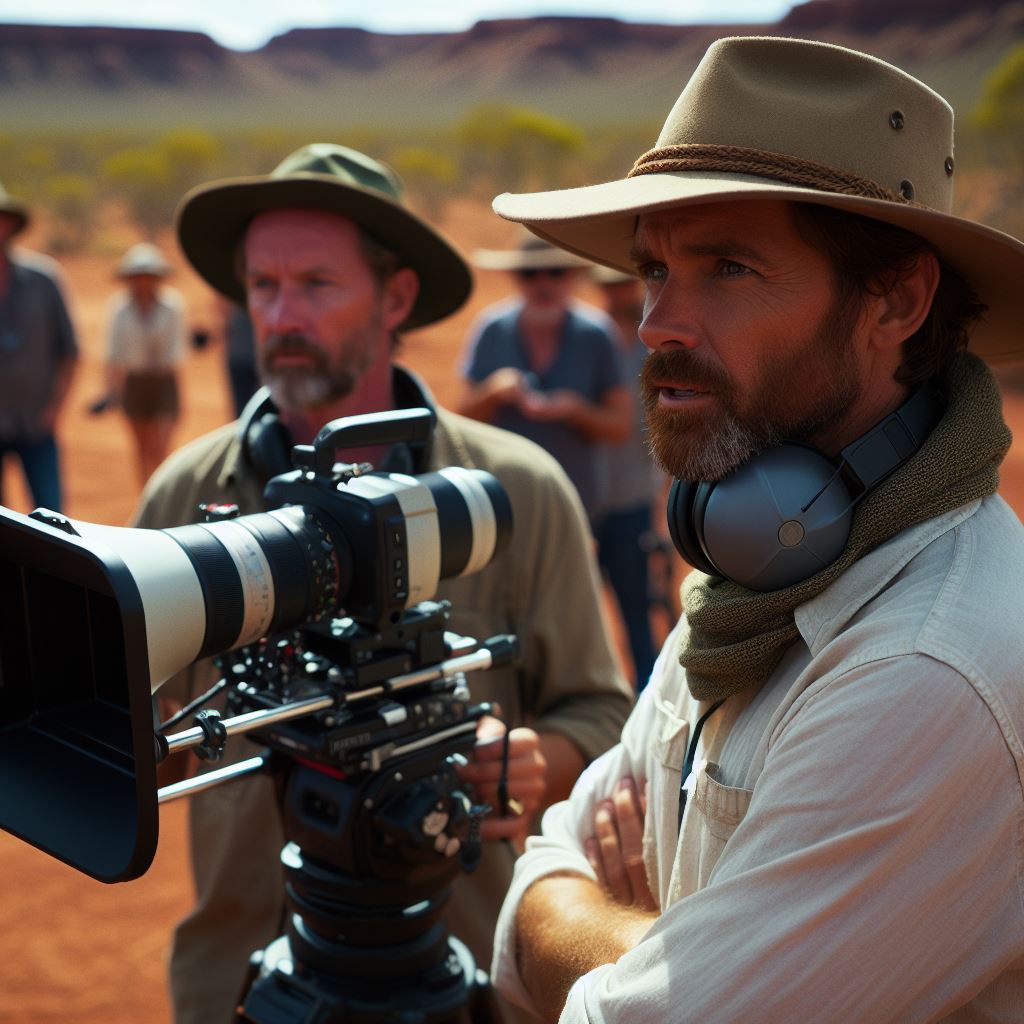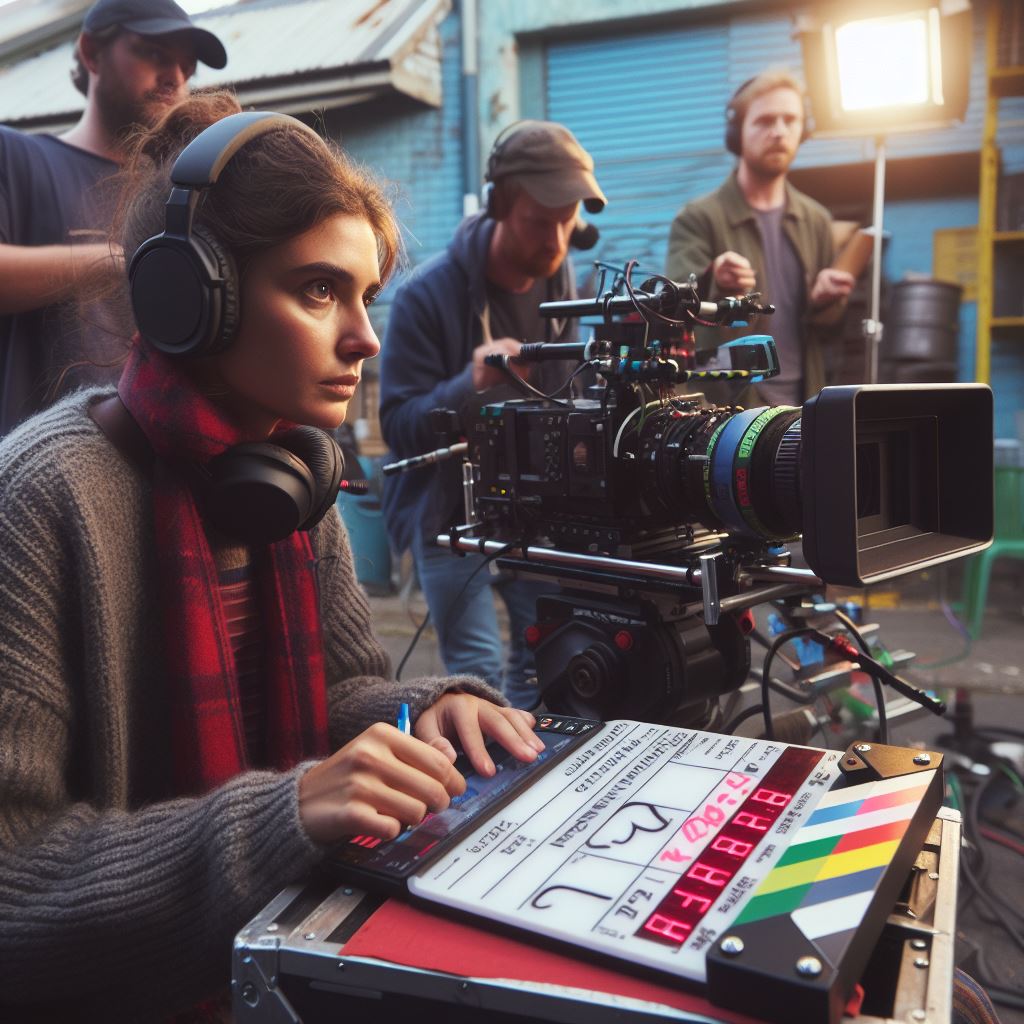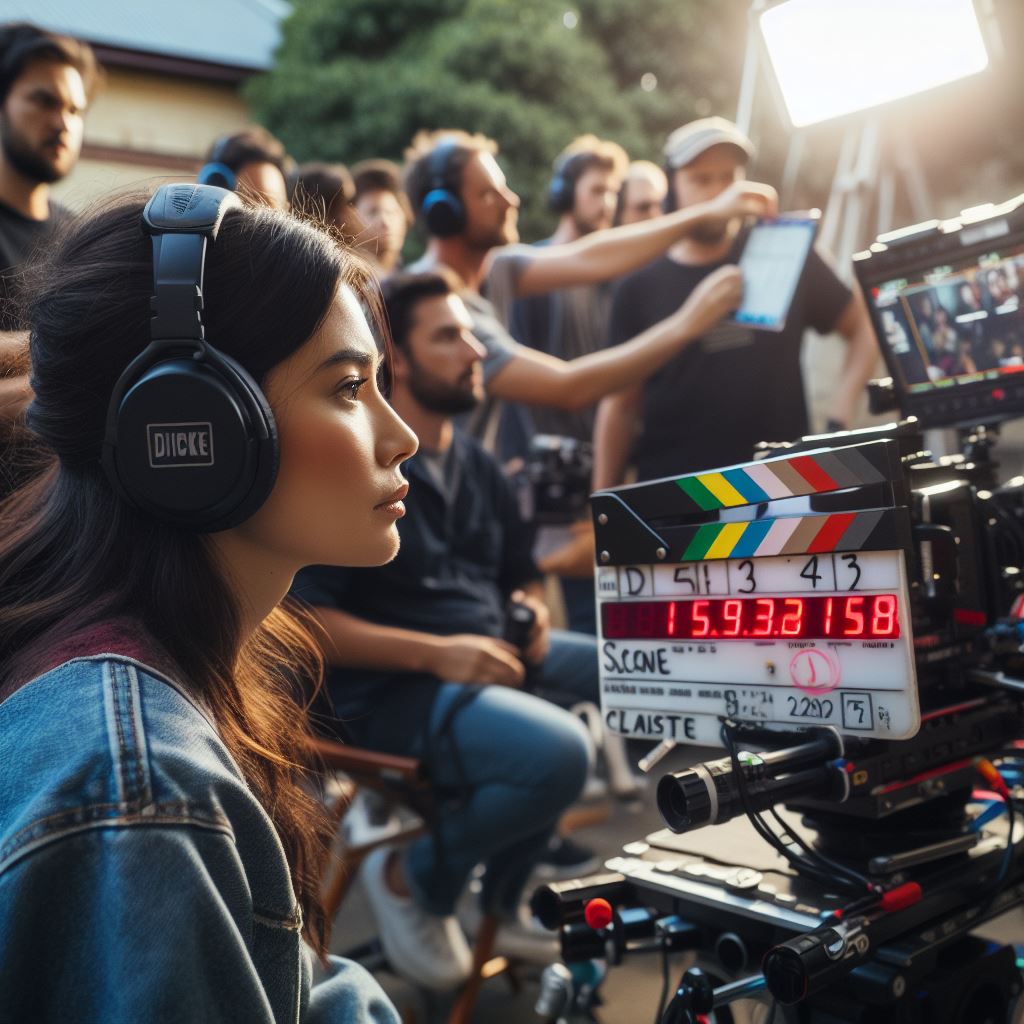Introduction
Australian Music Law is essential to understand for anyone involved in the music industry. Knowledge of music law in Australia is crucial for protecting rights and avoiding legal issues.
Welcome to the dynamic world of Australian Music Law, a landscape where legal principles harmonize with artistic expression. Explore essential facets of copyright, contracts, and industry regulations.
Dive into the melody of legal intricacies shaping Australia’s vibrant music scene. Gain insights into protecting intellectual property, navigating contracts, and understanding royalties.
Embark on a journey through the legal frameworks that safeguard artists’ rights and regulate the music business. In this section, unravel the key components of Australian Music Law, empowering musicians, producers, and industry professionals with knowledge and legal acumen.
Discover the notes that compose the legal symphony of the Australian music industry and equip yourself with the essentials to navigate this dynamic and ever-evolving legal landscape. Let’s delve into the legal rhythm that underlies the melodies and beats of the Australian music world.
Overview of Australian Music Law
Define what music law encompasses
Music law refers to the legal framework that governs various aspects of the music industry. It includes rules and regulations regarding the creation, distribution, performance, and protection of musical works.
The key aspects of music law in Australia
Copyright laws
Copyright laws grant exclusive rights to music creators, including composers, songwriters, and musicians, to control the use and distribution of their work.
Intellectual property rights
Intellectual property rights protect original musical works, giving creators the power to prevent unauthorized use or reproduction of their music.
Licensing and royalties
Licensing and royalty agreements enable artists to earn income from their music, ensuring fair compensation for the use of their compositions or recordings.
Contractual obligations
Artists often enter into contracts with record labels, publishers, and other industry professionals regarding the production, distribution, and promotion of their music.
Performance rights
Performance rights allow artists to control the public performance and communication of their music, ensuring they are properly compensated for live concerts, broadcasts, and digital streaming.
Emphasize the role of music law in protecting artists and their work
Music law plays a crucial role in safeguarding the interests of artists and their creative output. It provides a legal framework that ensures creators receive recognition and fair compensation for their musical works.
By establishing copyright laws and intellectual property rights, music law enables artists to have control over their compositions, recordings, and performances. This protection discourages unauthorized use or plagiarism of their work, preserving the integrity and value of their creations.
Licensing and royalty agreements are essential in the music industry as they ensure artists receive proper compensation for the use of their music.
These agreements establish the terms for the use of musical works, allowing artists to earn income from various sources such as radio airplay, streaming services, and live performances.
Contractual obligations in music law provide a legal framework for artists to negotiate favorable terms and protect their rights when entering agreements with industry professionals.
These contracts govern record deals, publishing agreements, and performance contracts, ensuring artists maintain control over their careers and receive fair treatment in the business aspect of the music industry.
Performance rights are crucial for artists as they allow them to control and monetize public performances of their music. Whether it is live concerts, television appearances, or digital streaming, performance rights ensure artists receive appropriate compensation for the exploitation of their work.
Overall, Australian music law serves as a vital tool in protecting the interests of artists, promoting creativity, and fostering a fair and sustainable music industry.
Without these legal protections, artists might find it challenging to pursue their careers and contribute to the vibrant music landscape in Australia.
Copyright Laws in Australia
Define copyright and its significance in the music industry
- Copyright is a legal right that grants exclusive control over original artistic creations.
- It is crucial in the music industry as it protects artists’ intellectual property and ensures fair compensation.
- Without copyright, anyone could freely use, distribute, or profit from musicians’ work without permission or payment.
How copyright is protected in Australia
- Australia adheres to the Berne Convention principles, which automatically protect works from the moment of creation.
- There is no registration requirement, but artists can voluntarily register their works to strengthen legal claims.
- Creative work must be original, fixed in a tangible form, and not fall into public domain or fair use exceptions.
The duration and ownership of copyright in musical works
- The duration of copyright in Australia for musical works is the life of the creator plus 70 years.
- If the creator is unknown, the duration is 70 years from the year of first publication.
- Ownership is initially with the creator, but can be transferred through contracts or assigned to music publishers.
The process of obtaining copyright protection for music
- Creation of musical work automatically grants copyright protection in Australia.
- Artists can use the symbol © followed by the year and their name as a notice of ownership.
- Registering with the Australian Copyright Office is optional but provides additional legal evidence.
The potential consequences of copyright infringement
- Copyright infringement can result in legal action, such as injunctions, damages, and account of profits.
- Artists or copyright owners may seek compensation for losses and reputational damages.
- Infringing parties may face financial penalties, seizure of assets, and permanent injunctions.
- Repeat offenders can face criminal charges, including fines and imprisonment.
Intellectual Property Rights in the Music Industry
The concept of intellectual property rights
Intellectual property rights refer to the legal protections granted to individuals or organizations to safeguard their creations or inventions.
Your Personalized Career Strategy
Unlock your potential with tailored career consulting. Get clear, actionable steps designed for your success. Start now!
Get StartedThe different types of intellectual property rights relevant to the music industry
Trademarks
Trademarks are symbols, logos, or names that distinguish one product or brand from another in the market. Musicians often trademark their stage names or logos.
Patents
Patents protect new inventions or technologies. In the music industry, patents may apply to innovative musical instruments or sound production techniques.
Designs
Design rights protect the visual appearances of products. In music, it can include album covers, stage sets, or even costume designs.
Illustrate the importance of protecting intellectual property rights for musicians and music-related businesses
Intellectual property rights ensure that musicians and music-related businesses can profit from their creative works and maintain control over their brand reputation.
Provide examples of how intellectual property rights can be infringed upon
Piracy
Unauthorized copying or distribution of music through illegal channels, denying artists and businesses rightful compensation.
Plagiarism
Unauthorized use or reproduction of someone else’s original music without obtaining proper permissions or giving credit.
Trademark infringement
Unauthorized use of established trademarks, such as using a musician’s logo or name without permission, leading to confusion in the market.
Cover versions without licenses
Recording or performing cover versions of copyrighted songs without obtaining proper licenses or permissions.
Counterfeit merchandise
Production and sale of fake or unauthorized merchandise, undermining the legitimate merchandise sales of musicians and music-related businesses.
Royalty disputes
Failure to compensate creators or copyright-holders for music use triggers legal disputes, causing income loss.
Musicians and music businesses must protect intellectual property for financial stability and creative independence.
Musicians establish unique market identities by trademarking stage names or logos, aiding fan identification and support.
Patents and design rights safeguard instruments, technologies, and visual creations, enabling musicians to profit from unique contributions.
Infringing intellectual property rights, without proper protection, results in significant repercussions for musicians and related businesses.
Stand Out with a Resume That Gets Results
Your career is worth more than a generic template. Let us craft a resume and cover letter that showcase your unique strengths and help you secure that dream job.
Get HiredPiracy illegally distributes music, depriving artists of rightful earnings, while plagiarism diminishes recognition and denies income from licensing.
Trademark infringement causes brand confusion, impacting artists’ market perception control.
Creating and selling cover versions without licenses can lead to legal consequences and financial loss.
Counterfeit merchandise production undermines legitimate sales, impacting musicians and music-related businesses’ revenue streams.
Royalty disputes arise when creators aren’t properly compensated for music use.
Intellectual property rights are crucial for musicians, safeguarding creative works, brand identity, and fair compensation in the music industry.
Read: How to Network in Australia’s Music Scene
Licensing and Royalties
Music licensing and royalties are essential aspects of the music industry in Australia.
Define music licensing and royalties
Music licensing refers to the process of granting permission to use copyrighted music.
Royalties are payments made to the owner of music rights for the use of their work.
Explain the various types of licenses required in the music industry
- Mechanical licenses: Required for reproducing and distributing recorded music.
- Performance licenses: Necessary for public performances of music, including live concerts and broadcasts.
- Synchronization licenses: Needed for using music in films, advertisements, and other visual content.
- Sampling licenses: Required when using a portion of another artist’s music in a new recording.
The role of licensing agencies in Australia
Licensing agencies act as intermediaries between music creators and users, ensuring fair compensation and proper usage.
APRA AMCOS (Australasian Performing Right Association and Australasian Mechanical Copyright Owners Society) is the predominant licensing agency in Australia.
Outline the process of obtaining licenses and the associated royalties
- Identify the rights holder and licensing agency for the desired music.
- Submit a license application, specifying the intended usage, duration, and distribution scope.
- Negotiate the terms and conditions with the licensing agency and obtain approval.
- Pay the required royalties, which are calculated based on factors such as usage type and audience size.
- Comply with the licensing agreement, ensuring proper reporting and payment of royalties.
Obtaining licenses and paying appropriate royalties are crucial for legal and ethical use of music in Australia’s music industry.
Read: The Evolution of Australian Music Genres
Transform Your LinkedIn for Maximum Impact
Elevate your professional brand with a LinkedIn profile that attracts recruiters, showcases your expertise, and maximizes opportunities. Stand out in your industry with a profile built for success.
Boost Profile
Learn More: Wedding Photography Trends in Australia
Contractual Obligations in the Music Industry
The significance of contracts in the music industry
- Contracts are vital in the music industry to protect the rights and interests of artists and industry professionals.
- They establish legal obligations, ownership rights, and financial agreements between parties involved in a music project.
- Contracts provide clarity and ensure that all parties involved understand their roles, responsibilities, and compensation.
The common types of contracts in the Australian music industry
Recording contracts
- These agreements are made between artists and record labels to define terms regarding the production, distribution, and promotion of recordings.
- They cover aspects such as album release, royalty payments, ownership of masters, and artistic control.
Publishing contracts
- Publishing contracts involve songwriters and publishers, outlining how songs are registered, published, and monetized.
- They specify royalty splits, licensing rights, and the obligations of each party in promoting and exploiting the songs.
Management contracts
- Artists often sign management contracts with music managers, who handle their career development, bookings, and business negotiations.
- These contracts determine the scope of managers’ responsibilities, duration of the agreement, and commission percentages.
The key terms and clauses that artists should understand in contracts
- Payment terms: Artists should be aware of how they will be compensated, including advances, royalties, and performance fees.
- Copyright and ownership: Contracts should define who retains the rights to the music and any intellectual property created.
- Termination clauses: Artists should understand the conditions under which they or the other party can end the contract.
- Exclusivity: If the contract involves exclusivity, artists should know the limitations and restrictions it imposes on their activities.
- Performance obligations: Contracts specify the number of albums to be delivered, songs to be written, or shows to be performed.
Provide tips for negotiating and reviewing contracts
- Seek legal advice: Consulting an experienced music lawyer can help artists understand complex terms and negotiate fair deals.
- Understand the entire contract: Artists should review all provisions, even the fine print, to avoid any surprises or hidden obligations.
- Evaluate financial terms: Artists should ensure that they are receiving fair compensation and that royalty calculations are clear.
- Clarify creative control: Artists should negotiate for artistic freedoms and make sure they have a say in important decisions.
- Have a termination plan: It’s essential for artists to know the steps necessary to terminate the contract if things don’t work out.
- Seek industry professionals’ opinions: Networking with other musicians and industry experts can provide valuable insights.
Contracts play a crucial role in the Australian music industry, safeguarding the interests of artists, songwriters, and industry professionals. Understanding the various types of contracts, key terms, and negotiation tactics is vital for all parties involved.
\Read: How to Network in Australia’s Music Scene
Performance Rights in Australia
Performance rights in the music industry refer to the exclusive rights given to songwriters, composers, and publishers to control the public performance of their copyrighted works.
The role of performance rights organizations in Australia
Performance rights organizations (PROs) in Australia, such as the Australasian Performing Right Association (APRA), ensure that songwriters and publishers are properly compensated for the public performance of their music.
The importance of obtaining licenses for public performances
Obtaining licenses for public performances is crucial as it ensures that the creators of music are appropriately compensated for the use of their intellectual property.
This licensing system also allows venues and businesses to legally play music without facing copyright infringement issues.
Outline the steps involved in obtaining performance licenses and the associated royalties
- Identify the music currently controlled by the PRO and determine if a license is needed.
- Contact the PRO to obtain the necessary license or licenses for public performances.
- Pay the required licensing fees, which are typically based on factors such as the type of venue and the frequency of performances.
- Report the music used and the number of performances to the PRO regularly to ensure accurate royalty distribution.
- PROs distribute the collected licensing fees as royalties to the rights holders, based on their catalog’s usage and popularity.
By understanding the concept of performance rights and the role of PROs, individuals involved in the Australian music industry can navigate the licensing process effectively and ensure fair compensation for all parties involved.
Read: Music Production: A Guide for Aussies
Gain More Insights: Cultural Impact of Australian Directors
Conclusion
In review, this blog section discussed the main points regarding Australian music law.
Understanding Australian music law is crucial for musicians and industry professionals to navigate the industry successfully.
It is highly recommended to seek legal advice to ensure compliance and protect one’s rights when dealing with music law in Australia.
In closing, a comprehensive understanding of Australian Music Law is indispensable for artists, producers, and stakeholders.
Navigating the intricate legal landscape empowers creatives to safeguard their intellectual property, negotiate contracts effectively, and foster a fair and sustainable music industry.
By staying informed about copyright, licensing, and contractual obligations, musicians can protect their artistic endeavors while promoting a harmonious environment for collaboration.
Furthermore, adherence to legal norms ensures a just compensation structure, contributing to the economic sustainability of the industry.
In an era marked by technological advancements and evolving business models, an awareness of music law equips professionals to adapt and thrive.
Embracing legal knowledge not only protects individual interests but also strengthens the collective foundation of Australia’s music scene.
As the industry continues to evolve, a commitment to legal awareness will be instrumental in shaping a dynamic and legally resilient future for music Down Under.




